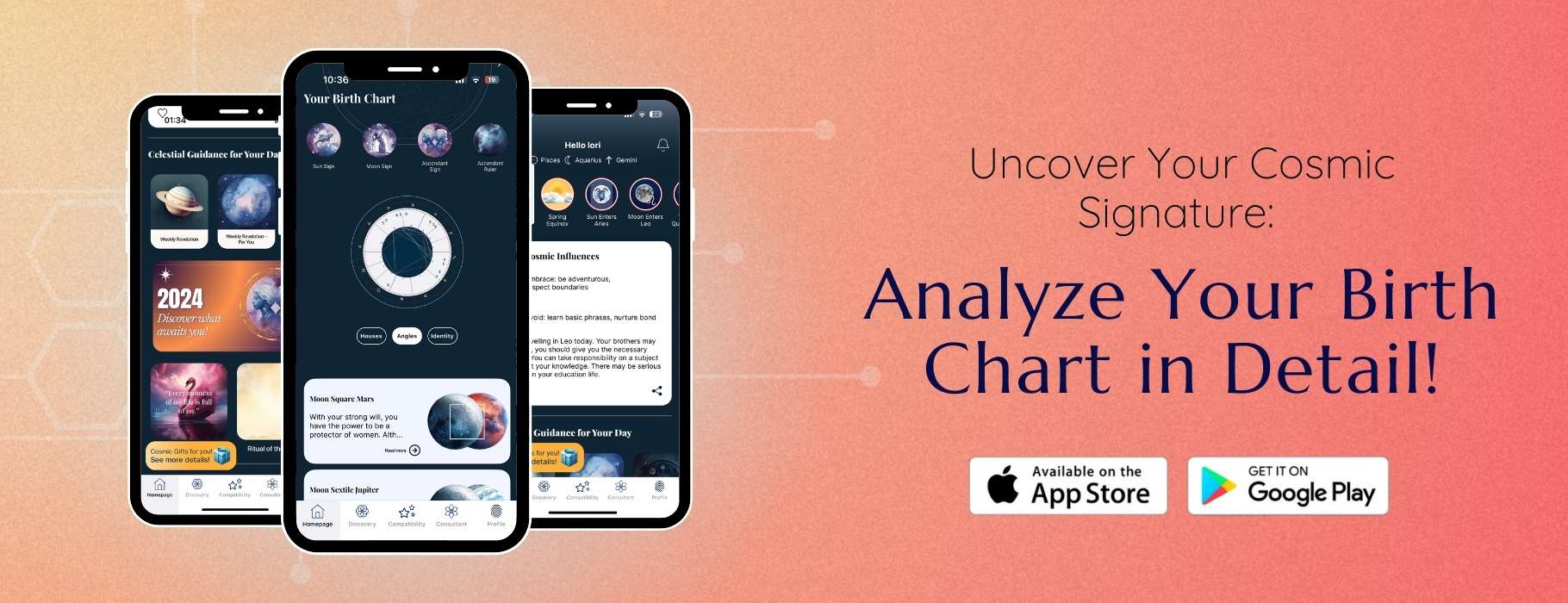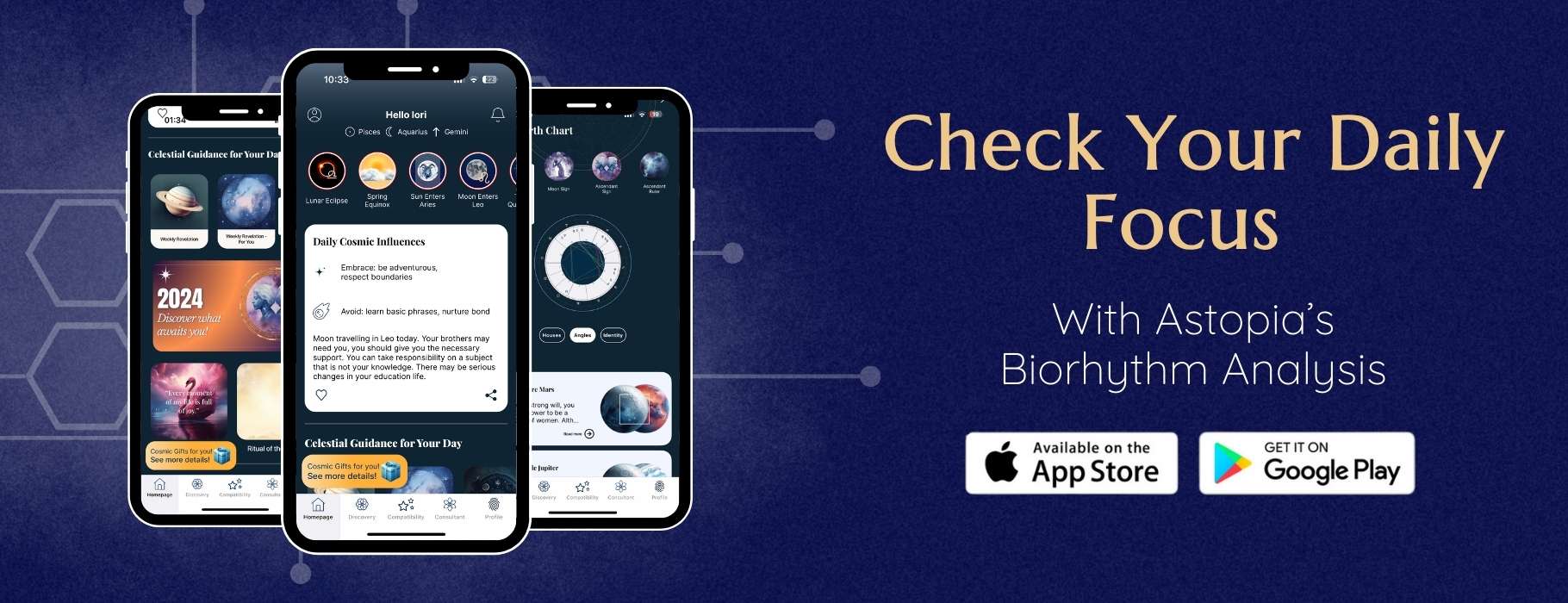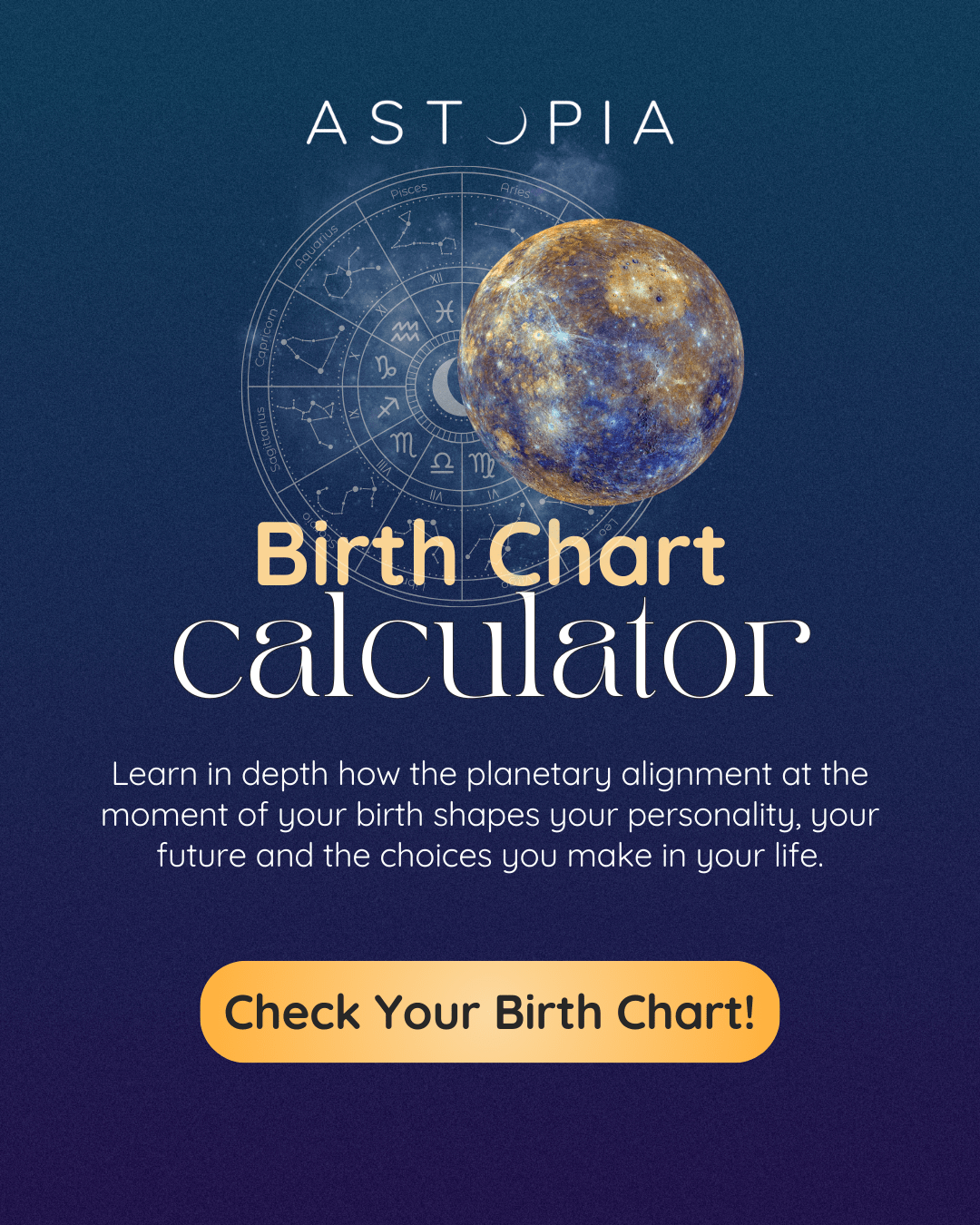
5/16/2024
Author: Astopia TeamSaturn in Synastry: Boundaries in Relationships
Astrology is full of various techniques that can help us understand the compatibility between two people. The most well-known of these is synastry. Synastry is used to determine compatibility and potential difficulties in relationships through comparative analysis of the natal charts of two people. Composite chart, on the other hand, is a technique in which the relationship of two people is evaluated as their own natal chart. These two methods are specifically used to understand the dynamics in relationships and blend the energies present between couples.
One aspect that stands out in the synastry chart is the position of Saturn. Saturn is known as the planet of discipline and responsibility. Where this planet is in the chart can indicate which aspects of the relationship may be challenging or which areas the couple needs to work harder on. For example, if one person's Saturn is in a hard aspect to another person's Sun, this can bring seriousness and restrictions, but it can also help the relationship get on a more mature footing.
The main difference between a composite chart and a synastry chart is that a composite is a joint chart formed by the combination of the energies of two individuals. This represents the total energy of the relationship and often reflects the overall theme and most prominent dynamics of the relationship. Synastry shows how individuals react to each other and in which areas they are compatible or have difficulties. Both types of charts are used as valuable tools in astrological counseling and offer couples insights into how they can achieve better harmony together.
Houses in the Synastry Chart
In astrology, houses in the natal chart represent various areas of life, and these houses also play an important role in the synastry chart. In a synastry chart, the placement of one person's planets in houses in another person's chart indicates which aspects of the relationship will be emphasized. This allows for a clearer understanding of the interaction between two people.For example:
- If a person's Sun falls in their partner's first house, this often creates an immediate attraction to that person and a general feeling of harmony. The first house is about self-expression and identity, so this position provides a natural flow of leadership and energy in the relationship.
- If a personvenus If it falls in the fifth house of the other, this means great harmony and pleasure in matters related to romance, entertainment and creativity. The fifth house includes love relationships, artistic creation, and relationships with children.
The interpretation of houses in the synastry chart shows how a relationship works and on what issues couples can support each other. This allows partners to understand how they integrate into each other's lives and which areas of life require more attention or development.For example:
- Second House: If one person's planets fall in another person's second house, this often creates an interaction with issues such as material values, money management and the need for security. These positions can highlight financial harmony and material support issues between two people.
- Seventh House: The seventh house is known as the house of partnerships and open relationships. If one person's planets fall in another person's seventh house, this often indicates the potential for a strong partnership with that person. This can mean a deep connection in both business and romantic relationships.
These house interactions in the synastry chart are an excellent guide to understanding where the relationship is comfortable or where potential difficulties may lie. The issues each house represents help couples better understand how they affect each other and the factors that shape the dynamics of the relationship.
Saturn in synastry
Astronomical and Cultural Background of Saturn
Saturn is the second largest planet in the Solar System after Jupiter and is known for its striking rings. These rings consist of ice particles, rocks and dust. Saturn takes its name from Saturn, the god of agriculture in Roman mythology, who is seen as the ruler of time and long-term processes. This cultural context also shapes planetary roles in astrology.
Astrological and Mythological Importance
In astrology, Saturn is considered the planet of discipline, responsibility, boundaries and restrictions. Because of its slow movement, it represents challenging but necessary aspects of individual development. Saturn is also associated with karmic lessons and maturation processes. Mythologically, Saturn's story reflects the theme of difficult choices and consequences, with him having to swallow his sons and eventually be overthrown by his son Jupiter.
Meaning and Function of Saturn in Synastry
In the synastry chart, Saturn represents structure and durability in relationships. The position of this planet shows the couples' commitment to each other, the challenges they face and their capacity to overcome these challenges. Saturn symbolizes tests and difficulties in relationships, as well as the setting of boundaries. This often determines the long-term potential and durability of the relationship.
- Supportive Aspects: If Saturn has harmonious aspects (sextile, trine) in the synastry chart, this indicates that the relationship is strengthened by a sense of mutual support and trust. Couples support each other in sharing responsibilities and achieving long-term goals.
- Tough Aspects: Challenging aspects of Saturn (square, opposition) indicate that power struggles and restrictions may occur in the relationship. These aspects test the durability of the relationship and encourage couples to make more efforts to overcome problems.
In the synastry chart, Saturn can also highlight differences in age, maturity, or life experiences between individuals. It can also determine the level of obligation and commitment in a relationship. The effects of this planet often reveal the seriousness of the relationship and the structural and functional aspects of the couples' relationships with each other. Saturn can be challenging, but it also adds depth and solidity to the relationship, thus helping to create a more solid and functional union over time.
Saturn in Houses in Synastry
In the synastry chart, Saturn, as a planet symbolizing structure, boundaries and difficulties in relationships, carries different meanings depending on which house it falls into. Here are the general meanings of Saturn according to the houses in the synastry chart:
Saturn in the 1st House
The fact that Saturn is located in the 1st house in the synastry chart highlights the theme of seriousness and self-discipline in the relationship. This position can seriously affect the individual's view of himself and the way he expresses himself. Saturn here may limit the partner's self-confidence and independence or impose more responsibility on him/her. This can cause some difficulties at the beginning of the relationship because one party may feel restricted. However, this position also offers opportunities for patience, endurance and maturation in the relationship. Overcoming these challenges within the relationship can help the couple build a stronger foundation.
Saturn in the 2nd House
Saturn in the 2nd house can bring a sense of restriction on financial and material resources. This position represents a serious approach to material security and values in the relationship. While Saturn is in this house, couples may face a situation that requires hard work and discipline to achieve financial goals. This requires careful management of shared resources and expenditures. However, this also provides the opportunity to build more trust and mutual support in the relationship by sharing financial responsibilities.
Saturn in the 3rd House
Saturn in the 3rd house may indicate some obstacles and difficulties in communication and close relationships. This position can create seriousness in expression and sometimes a feeling of frustration. Some restrictions may be felt when communicating in the relationship, but this also offers the couple a chance to improve their communication skills and have more meaningful conversations. This may also require greater seriousness and focus on information exchange and training.
Saturn in the 4th House
Saturn in the 4th house can have a serious impact on home and family life. This position increases responsibilities and obligations within the family. A more disciplined and orderly environment at home may be required, but this can also bring greater resilience and patience to the challenges encountered in home life. This can increase the feeling of security and stability in the relationship and provide stronger foundations in the long term.
Saturn in the 5th House
Saturn in the 5th house may impose some restrictions on romance and creativity. This position emphasizes seriousness and responsibilities in love life. Romantic expression can be more heavy and serious, which can lead to some difficulties in the beginning. However, this seriousness can help build deeper bonds in the relationship and take a more disciplined approach to creativity. A similar responsibility and seriousness may be present in relationships with children.
Saturn in the 6th House
Saturn in the 6th house brings seriousness in daily routines, work and health. This position requires more discipline and order in work and health routines. Responsibilities may increase in the practical aspects of daily life, but this can help develop healthier living habits and increase work effectiveness. This may also require greater seriousness and professionalism in business dealings.
Saturn in the 7th House
Saturn in the 7th house emphasizes commitments and obligations in the relationship. This position increases seriousness and long-term responsibilities in partnerships. When Saturn is in this house, the relationship may require more patience and work, but this seriousness can create a stronger and more stable bond between the couple. It may also require seriousness and responsibility in legal or official matters.
Saturn in the 8th House
Saturn in the 8th house brings seriousness in matters of financial partnerships and inheritance. This position represents a serious approach to financial and emotional commitments. The relationship may require discipline in financial matters and there may be some difficulties in emotional depths. However, these challenges can deepen couples' commitment and trust in each other.
Saturn in the 9th House
Saturn in the 9th house brings seriousness in philosophical, spiritual and higher education matters. This position requires greater discipline and focus in spiritual and intellectual pursuits. Long distance relationships and interactions with different cultures may require a more serious approach during this period.
Saturn in the 10th House
Saturn in the 10th house can have a serious impact on career and social status. This position requires greater responsibility and discipline in professional life and roles within society. The relationship can play an important role in achieving an individual's career goals and may require a serious approach to social visibility.
Saturn in the 11th House
Saturn in the 11th house emphasizes responsibilities in the social environment and friendship relations. This position indicates a more serious and responsible approach to friendship and social relations. More work and discipline within the group may be required to achieve long-term goals.
Saturn in the 12th House
Saturn in the 12th house highlights the theme of inner fears, limitations and confronting the past. This position requires a serious approach to overcoming personal boundaries and difficulties. Discipline and patience may be required for confrontation with one's inner world and spiritual growth. Saturn in this house represents the journey of developing self-sufficiency and inner peace.







